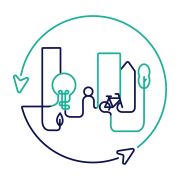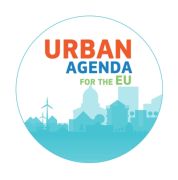
Land suitability analysis is a valuable tool for determining how to use land, assets and opportunities to ensure the sustainable urban development and resilience of a functional urban area. This technical training from the European Urban Initiative focuses on building the practical skills of urban authorities, enabling them to apply the land suitability analysis methodology developed by the World Bank and the European Commission. Participants learn to establish a multilevel governance structure and apply the tool to real local challenges. The training supports the design of actionable, place-based projects that align with sustainable urban development strategies and EU priorities.
- Cohesion | EU/ European | Governance and Public administration | Local and regional | Sustainable | Urban
- Code: 14IS252535
- Square Brussels, Hall 300
Speakers
Practical information
- When
-
Tue 14/10/2025, 09:30 - 11:00 CET
- Where
- Square Brussels, Hall 300
- Type of partnership
- Partnership
- Format
- Interactive session
- Theme
-
Cities building tomorrow
- Language
- English
Partners

European Urban Initiative

Urban Agenda for the EU
Reporting
Session summary
The session “Land Suitability Analysis: The management of land assets for more competitive Functional Urban Areas” aims to build the capacity of EU Functional Urban Areas (FUAs) by introducing the Land Suitability Analysis (LSA) methodology — a practical, data-driven tool developed with the World Bank to improve land management, competitiveness, and multi-level cooperation. The participants attended a very practical exercise on land sustainability analysis, which allowed them to have a better understanding on how to manage land assets at a functional urban area level.
The exercise allowed them to:
- Understand very practically how multi-level governance works in a FUA and what concrete assets, measures and ideas to consider.
- Dive into how innovative land management approaches can make FUAs more competitive and sustainable.
- Based on real examples from Constanța (Romania), Zagreb (Croatia), and Rzeszow (Poland), tested the tool for supporting urban regeneration, affordable housing and strategic spatial development.
Besides understanding the various aspects of land planning and their impact on competitiveness in the given FUA, participants were informed on how they could use the capacity building formats offered by the EUI (City-to-City Exchanges, Peer Reviews, Events) to tackle specific challenges and invited to continue their capacity building and collaboration across governance levels.




